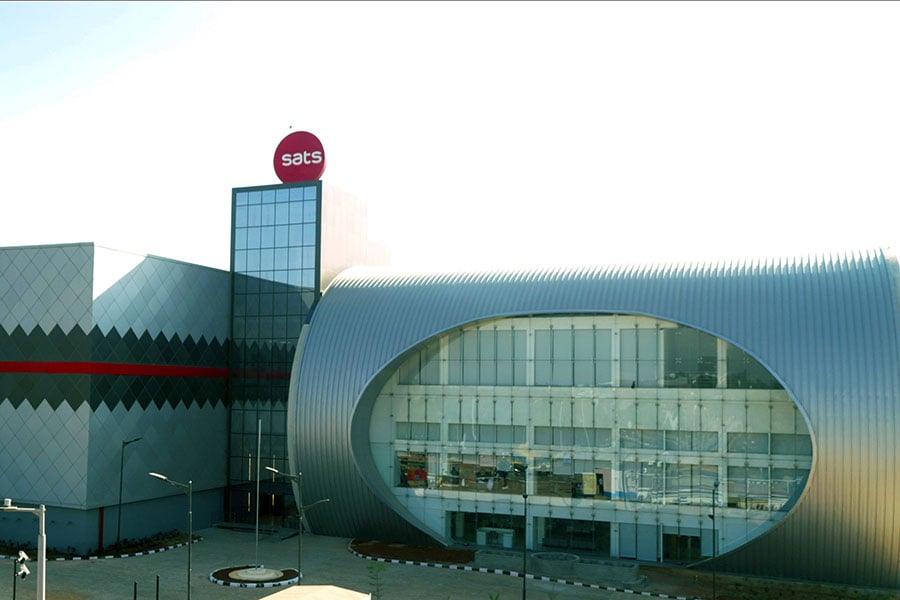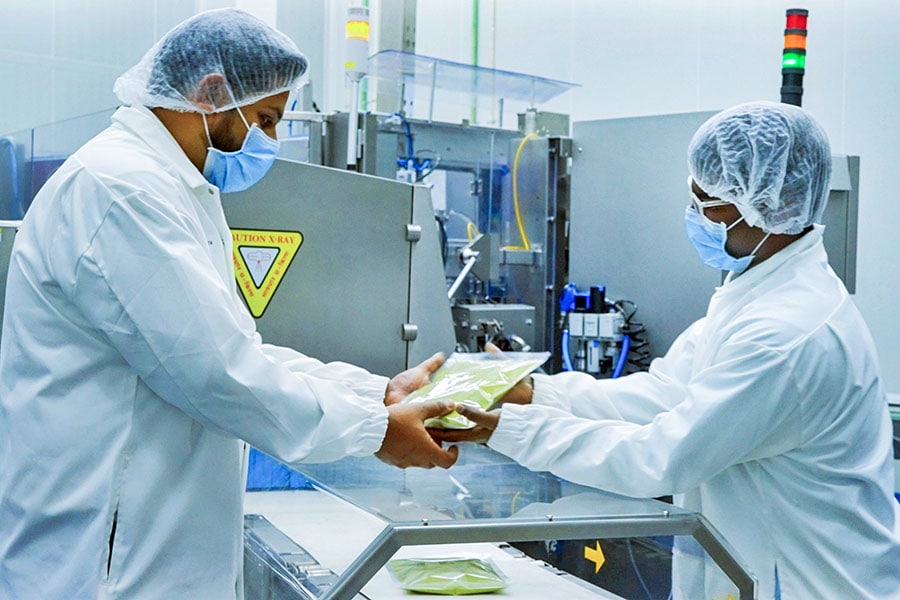
SATS Group invests SG$61 million in new facility to serve ready-to-eat market
The international foods solutions facility in Bengaluru to serve as the central kitchen for the company's newly launched RTE vertical in India
 The facility, which is close to the Kempegowda International Airport and spread over 221,000 sq. ft, will be the central kitchen for the company’s newly launched ready-to-eat (RTE) vertical in India.
The facility, which is close to the Kempegowda International Airport and spread over 221,000 sq. ft, will be the central kitchen for the company’s newly launched ready-to-eat (RTE) vertical in India.
On Friday, SATS Food Solutions India (SFSI), a wholly owned subsidiary of SATS Ltd (SATS) opened its largest international food solutions facility in Bengaluru, India. The facility, which is close to the Kempegowda International Airport and spread over 221,000 sq. ft, will be the central kitchen for the company’s newly launched ready-to-eat (RTE) vertical in India. “We have found India’s rich culture and its dynamic growth as a huge opportunity,” says Stanley Goh, CEO, SATS Food Solutions. The group has invested SG$61 million (Rs 378 crore) into setting up this new facility.
The facility has state-of-the-art machinery and equipment brought in from across the world, that can automate production of everything from croissants and cupcakes to curries and chapatis. From raw materials being brought in, to the frozen goods being ready—the entire supply chain is powered by Internet-of-things (IoT) sensors, with just the right amount of human intervention.
It has a capacity to supply up to 40,000 kg of ready-to-eat food products per day to institutional catering, private labelling, and commercial clients, including large-scale food retailers, restaurants, cloud kitchens, cafes, and lounges in India, and international markets.
Globally, the company is known for its food solutions business, including airline catering. In April 2023, SATS Group completed its acquisition of Worldwide Flight Services (WFS), the world’s largest air cargo logistics provider and one of the leading providers of ground handling services. In India, SATS has been working for 20 years with joint venture partners such as TajSATS and AISATS (AirIndia-SATS).
Potential for the ready-to-eat market
Goh claims there is a massive growth potential for ready-to-eat meals in India, owing to changing lifestyles, urbanisation, and rising disposable income. A SATS Projects Sizing study values sales for ready meals in India at US$52 billion in 2023 which will reach US$64 billion by 2026. Between 2021 and 2026, the value will expand at a rate of 45 percent. According to the Ministry of Food Processing Industries (MOFPI) in India, 34 percent of the Indian population, driven by young consumers and millennials, will consume more RTE meals by 2028. The global demand for Indian RTE food products is also outpacing the domestic demand.









